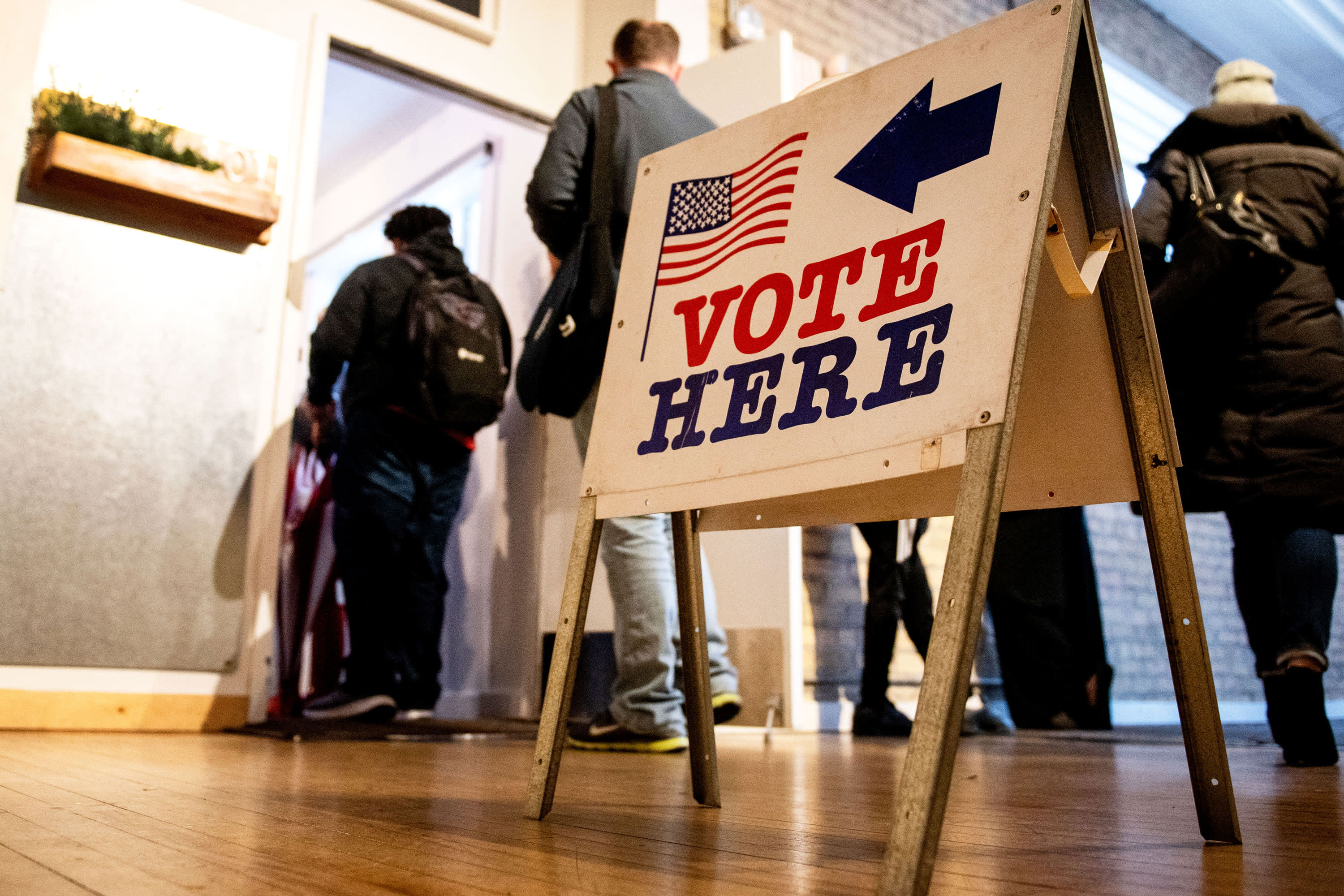Stephen Maturen | Getty Images
Recent stock market highs and lows have investors already bracing themselves for one more looming uncertainty: the presidential election.
If you’re like most investors, you’re already anticipating that the outcome of this year’s race for the White House will have an impact on your money.
The vast majority of investors — 93% — believe the presidential race will affect the stock market, according to a recent survey from Hartford Funds, an asset manager. Moreover, 84% said they expect that will impact their investing habits.
More from Personal Finance:
How many weeks of extra $300 unemployment benefits are coming?
Second $1,200 stimulus checks could be a longshot
The CDC banned evictions, but some renters are still vulnerable
While 45% of investors surveyed said they plan to make changes before the election, 62% indicated they will likely make changes in the 12 months after Nov. 3, Hartford Funds’ survey found.
The anticipation has already prompted financial advisors to urge clients to remain calm.
“We’re definitely seeing heightened emotions and a lot of passion coming out of this election,” Julia Carlson, founder and CEO of Financial Freedom Wealth Management Group in Newport, Oregon, said during a Thursday webcast.
Carlson said she has urged clients to separate their emotions from their investing decisions. “Whichever way this election goes, it’s not going to break the nation,” she said.
What we can learn from past elections
Republican president-elect Donald Trump delivers his acceptance speech during his election night event at the New York Hilton Midtown in the early morning hours of November 9, 2016 in New York City.
Getty Images
Though the first Tuesday in November may feel like a high-stakes turning point for the markets, history shows that might not necessarily be the case.
Dating back to 1933, a Democratic president typically presides over a higher U.S. equity market than a Republican president, said Brian Kraus, head of investment consulting at Hartford Funds.
And if you strip away some outliers, such as the boom years under President Bill Clinton or the dips prompted by the dot com bust, there’s practically zero difference in equity market returns, he said.
“There is a perception that party affiliations of presidents are going to impact stock market returns much more than actually has played out in the numbers,” Kraus said.
Investors who take a long-term view and buy and hold will likely be rewarded. If you put $10,000 in the market around Election Day, 10 years later it will have gained value, said Stephanie Link, chief investment strategist and portfolio manager at Hightower, a wealth management firm.
“Short-term, the market never likes uncertainty,” Link said. “We have this uncertainty and we don’t know who’s going to win.”
What could happen if Trump is re-elected
Shannon Stapleton | Reuters
Exactly how the election affects the markets would likely change based on three different potential outcomes, Link said.
The first scenario is the status quo, where President Donald Trump is re-elected and Congress remains split between Republican and Democrat leadership.
“I think the market would like that,” Link said. “It would know who was in there.”
Small companies would likely rally on the news, she said, while other sectors including traditional energy, financials and technology would also be poised to do well.
“What wouldn’t work is China, because the rhetoric on China will actually tick higher,” Link said.
What may happen if Biden and Democrats win
Democratic Presidential Candidate former Vice President Joe Biden speaks to a full crowd during the Joe Biden Campaign Rally at the National World War I Museum and Memorial on March 7, 2020 in Kansas City, Missouri.
Kyle Rivas | Getty Images
The second scenario is if Democratic presidential nominee Joe Biden wins and there is a Democratic sweep of Congress.
“The market will probably sell off, maybe at 2% to 4% and I think because of the tax proposals that he has,” Link said.
Covid-19 will make it difficult for Biden to hike taxes on companies. So, unless there is a vaccine, those levies will likely get deferred, Link said.
“Initially the market might sell off,” Link said. “I think buy that dip, quite frankly.”
Infrastructure, clean energy and health-care services companies would be poised to do well, she said. Pharmaceutical companies and FAANG stocks (Facebook, Amazon, Apple, Netflix and Alphabet) could dip.
What a Biden win and split Congress would mean
House Speaker Nancy Pelosi, D-Calif., and Senate Majority Leader Mitch McConnell, R-Ky., at the U.S. Capitol to honor late Rep. John Lewis, D-Ga., in Washington, D.C., on July 29.
Brendan Smialowski | AFP | Bloomberg via Getty Images
The third scenario would be if Biden wins and Congress stays split between Republican and Democrat control.
“I think that the market likes that the best, because probably not much gets done,” Link said. “Therefore, I think equities will rally.”
While Hartford Funds’ survey found many people believe Republican control leads to better market returns, history shows better performance tends to happen under a divided government, Kraus said. “People just don’t expect that,” he said.
What you should do to protect your money
While it may be tempting to make bold moves in anticipation of a political shake up on Nov. 3, financial experts say you should still take a long-term approach to your goals.
Moves you may want to consider include rebalancing portfolios or taking profits from stocks that have done really well, said Carin Leong Pai, director of equity management at Fiduciary Trust International, a wealth management firm.
Rather than focusing on the November election, take a step back and ask whether your investment allocation matches your specific circumstances, UBS recently advised.
“The election outcome is still uncertain and positioning a portfolio right now for a specific outcome leaves it vulnerable to the good chance that another outcome, with different market consequences, materializes,” UBS wrote.
